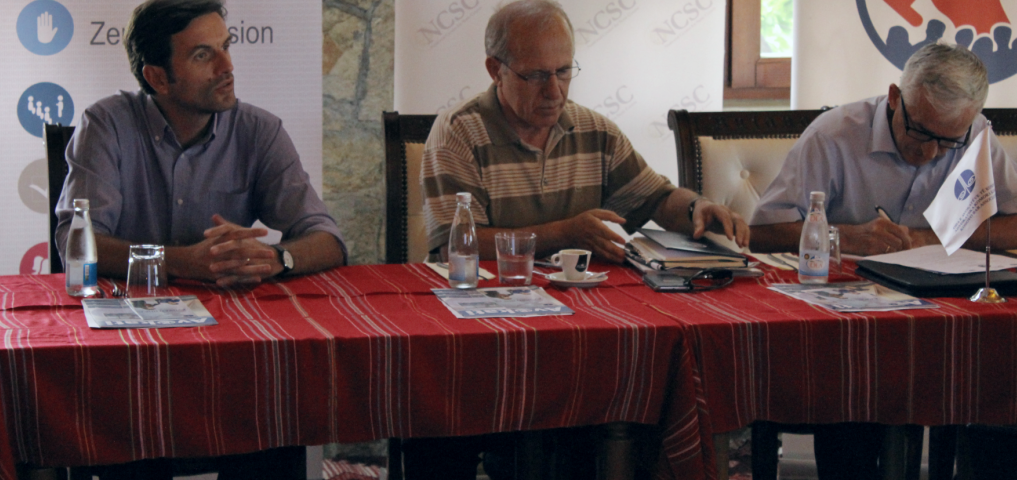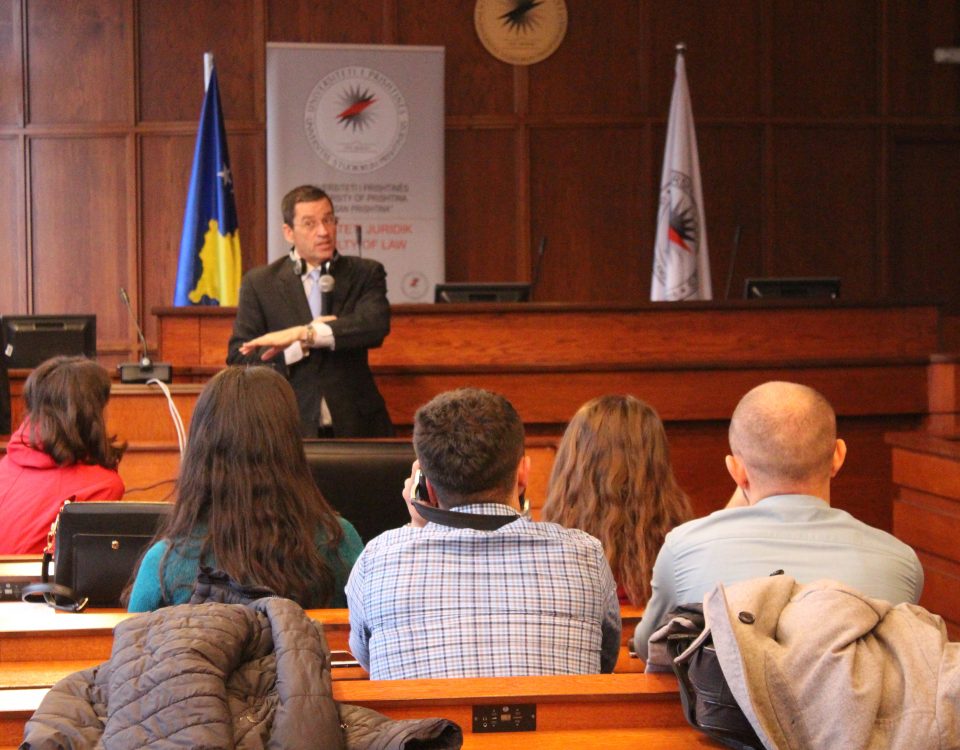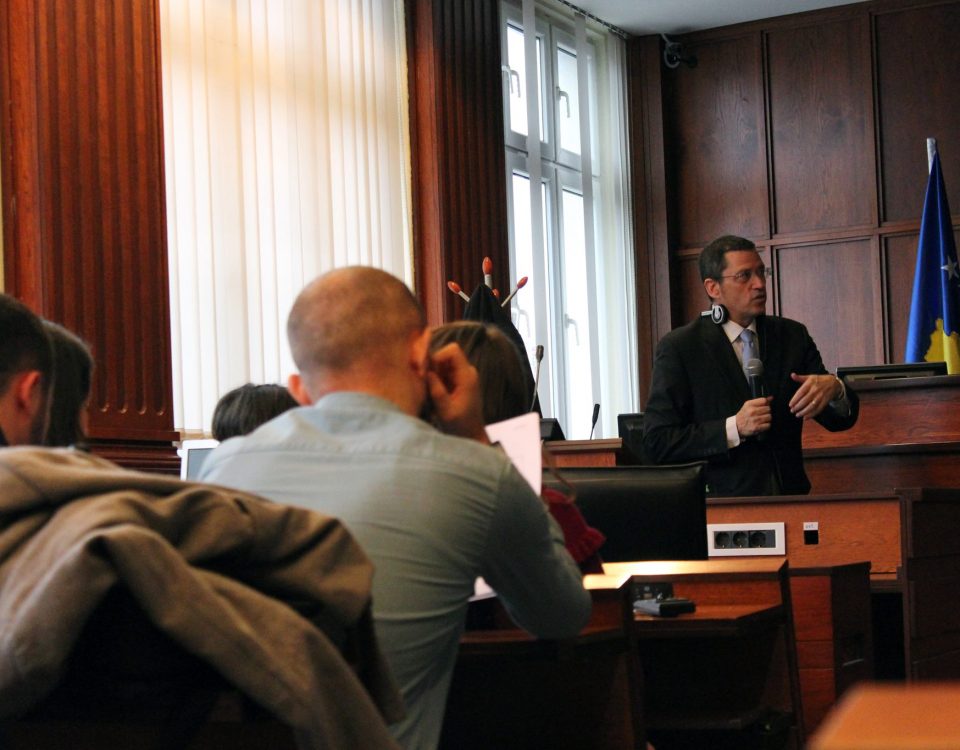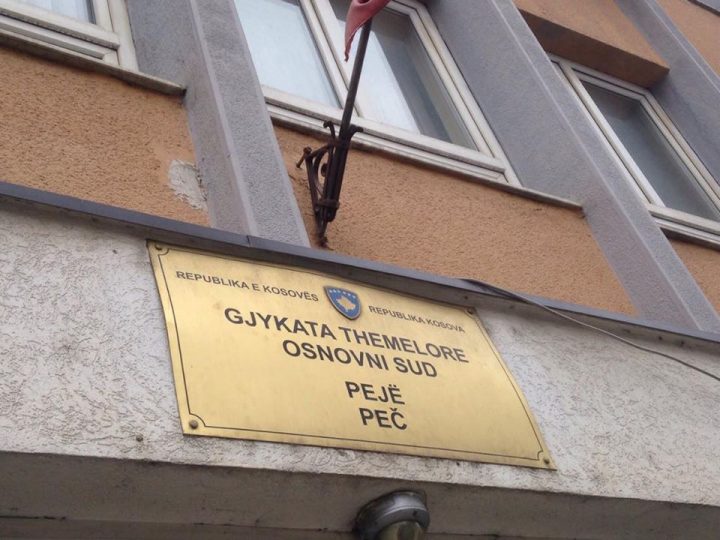Prizren and Gjilan Bench Bars discuss the findings of the JII Survey

YIHR Public Debates on the Justice Sector
June 10, 2017
KLI Publishes Report on Legal Aid in Criminal Cases
September 14, 2017Following the design and the global implementation of the Judicial Integrity Initiative (JII) by the International Bar Association (IBA) in 2015, our D4J partners – the Kosovo Democratic Institute (KDI) and Kosovo Bar Association (KBA) adopted the initiative to the local context. The survey invited justice system actors to anonymously reveal their perceptions about corrupt practices in the justice sector.
After the April-May 2017 surveying process, KDI held post-survey bench bar discussions and conducted individual interviews with key players in Kosovo’s justice sector. In July KDI organized meetings with judges, prosecutors, advocates and police representatives in Prizren and Gjilan to discuss the findings of the JII Survey.
According to the Survey, more than 70 percent of respondents admitted that they are personally aware of the presence of corrupt behavior in the justice system. Survey takers identified the most common forms of corrupt behavior to be favoritism and nepotism followed by political interference and bribery. The main incentives driving corrupt acts include personal gain, the maintenance of good relations with political actors followed by remuneration and appointments, and an inadequate level of oversight mechanisms. Meanwhile, advocates were identified as the main intermediaries in the process of exchanging material benefits for corrupt behavior.
As the Bench Bar participants discussed the JII findings, a range of attitudes emerged.
“This Survey is a very good step and I am confident of the accuracy of the results. No matter how displeased we may be with the findings, it is important for all relevant institutions to deal with this social phenomenon, and to cooperate to identify specific cases, and to act to prevent this phenomenon in the interest of justice,” said Osman Havolli, President of KBA during the Bench Bar in Prizren.
The President of the KBA Regional Branch in Gjilan, Shemsedin Piraj, acknowledged the presence of corruption in the justice system, and stated his personal knowledge of a substantial number of cases of corruptive behavior.
This revelation provoked a response from Aziz Shaqiri, Judge at the Basic Court of Gjilan, who described the phenomenon of corruption as a “cancer in many [justice] systems in the world” and argued that “in order to fight it, we all have to report such cases; if we know names we have to announce them; and we need to have deep reforms in the justice system.”
Overall, no one present at the Bench Bars denied the existence of corrupt behavior in the justice system, however, very few participants spoke openly about the mechanisms and circumstances surrounding such cases of corruption. In addition, all participants concurred that oversight and disciplinary systems of judges, prosecutors and lawyers are strong enough to address corrupt actions occurring in the justice sector.





